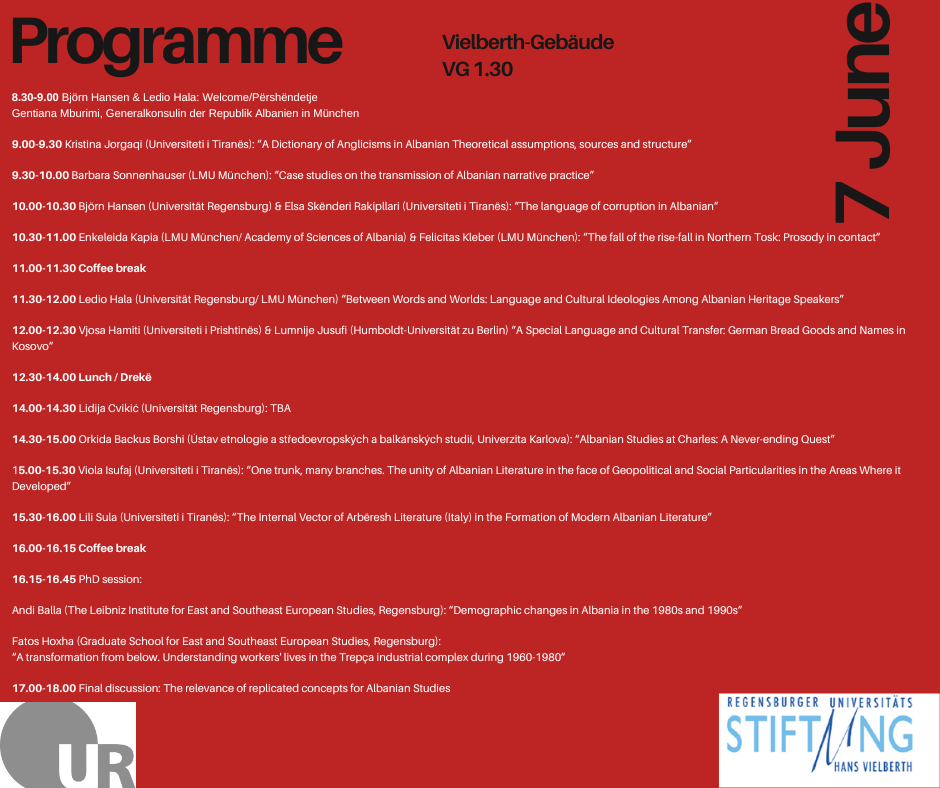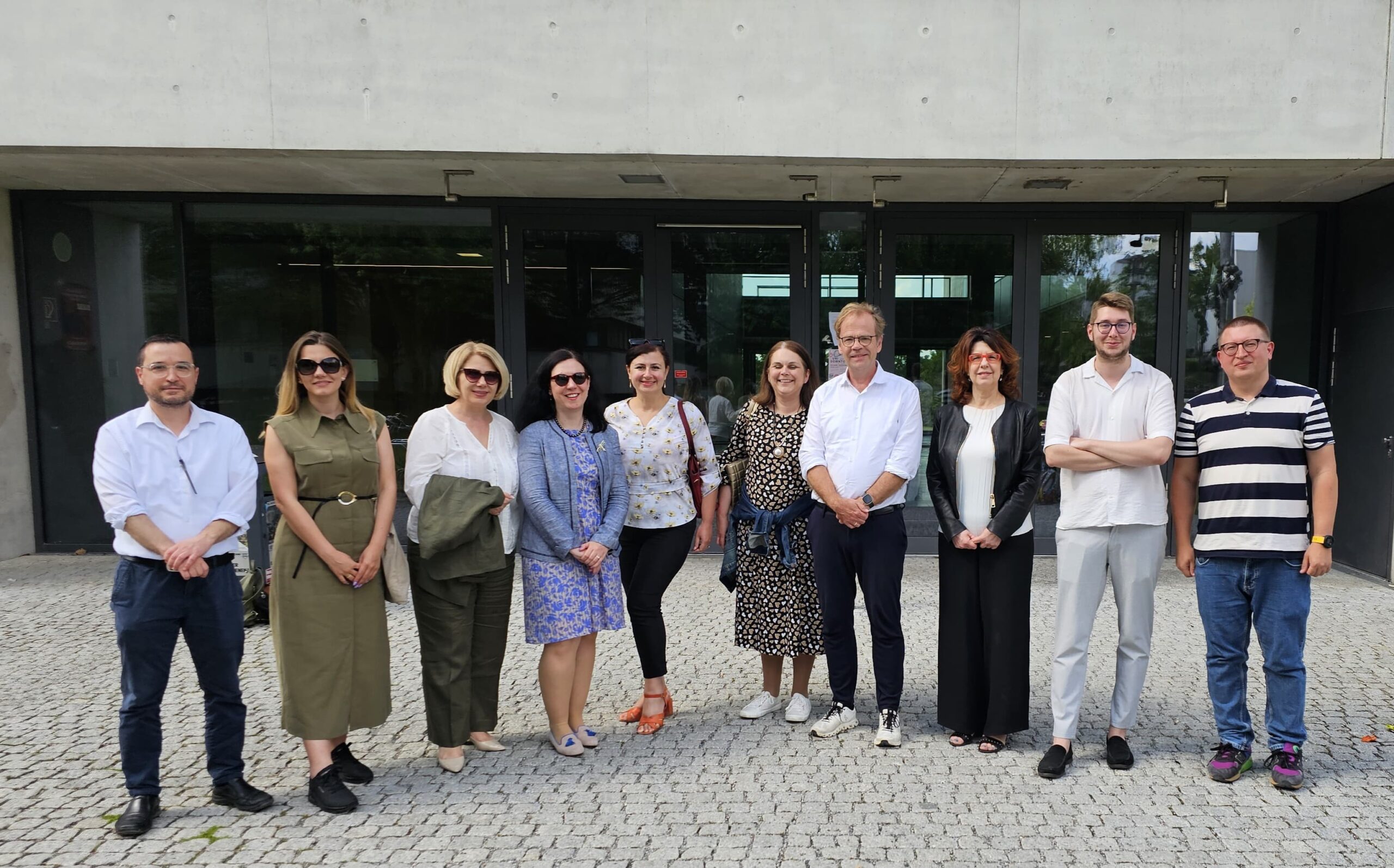After welcome address of the dean of the faculty Languages, Literatures and Culture Prof. Dr. Maria Selig, the conveners Prof. Björn Hansen and Ledio Hala (M.A.) opened the symposium.
Kristina Jorgaqi presented “A Dictionary of Anglicisms in Albanian,” documenting the extensive lexical influence of English on Albanian over recent decades. The dictionary categorizes direct borrowings, adapted forms, and pseudo-anglicisms, contributing to the broader study of global linguistic influence. This work provides a valuable reference for understanding the evolving Albanian lexicon in the context of increasing English contact.
Barbara Sonnenhauser conducted case studies on the transmission of narrative practices among Gheg speakers in a German-speaking environment. Using re-narrations of the pear story video, her research revealed increased convergence in German narrative practices among third-generation speakers. The studies indicated the impact of vertical and horizontal transmission on linguistic features and confirmed migration and heritage languages as proxies for historical linguistic processes.
Enkeleida Kapia & Felicitas Kleber presented a study on prosody in Northern Tosk as a “travelling concept” in contact situations. By comparing intonational patterns over three generations, they observed a decline in the rise-fall pattern in Northern Tosk. This change was attributed to shifts in language contact, including decreased interaction with Greek varieties and increased influence from Standard Albanian during post-communism.
Björn Hansen & Elsa Skënderi Rakipllari examined the language of corruption in Albanian through a lexico-semantic approach. Their study inventorized the Albanian lexicon of corruption and performed corpus linguistic analyses to understand the frequency and synonymy of terms related to corruption. They discovered that although terms for agents and clients of corruption exist in dictionaries, they are rarely used in practice. The study also highlighted how corruption is framed in media by analyzing conceptual metaphors.
Ledio Hala focused on the challenges and methodologies of teaching Albanian to heritage speakers at the University of Regensburg. Emphasizing the diverse linguistic backgrounds and ideologies of these students, Hala advocated for an inclusive approach that validates dialects while teaching the standard form. This methodology fosters a supportive learning environment, helping students integrate their linguistic identities with the standard language. Further research is recommended to refine these educational strategies.
Lidija Cvikić explored the status of Albanian as a minority language within the Croatian educational system. The study highlighted the challenges and successes of the “Albanian Language and Culture” program offered in Croatian schools. Despite issues like heterogeneous class proficiency and a lack of standardized curricula, the program thrives due to motivated students and teachers, strong community language retention, and governmental support from Albania and Kosovo.
Lili Sula analyzed the influence of Arbëresh literature on modern Albanian literature. Tracing its origins from 15th-century migrations to southern Italy, Arbëresh literature has maintained Albanian language and traditions. Key figures like Jeronim de Rada and his Romantic works played a crucial role in shaping Albanian literary identity, linking it with European literary movements and ensuring its continuity.
Viola Isufaj discussed the unity and diversity of Albanian literature across different geopolitical and social contexts. Highlighting the varied literary environments in Albania, Kosovo, the diaspora, and Arbëresh communities, she emphasized the impact of socialist realism and modern poetics. Despite differing circumstances, these literatures share a common Albanian cultural trunk, contributing to a unified yet diverse literary tradition.
Vjosa Hamiti and Lumnije Jusufi talked about “A Special Language and Cultural Transfer: German Bread Goods and Names in Kosovo”. They showed how linguistic and cultural transfer are intertwined in the field of bakery.
Orkida Backus Borshi detailed the history of Albanian language studies at Charles University in Prague. Starting in the 19th century, interrupted by political factors, and revived due to the Kosovo conflict, Albanian studies have now become stable and integrated into the Department of South Slavic and Balkan Studies. The program offers comprehensive education in Albanian language, culture, and history, comparable to other Balkan languages taught at the university.

